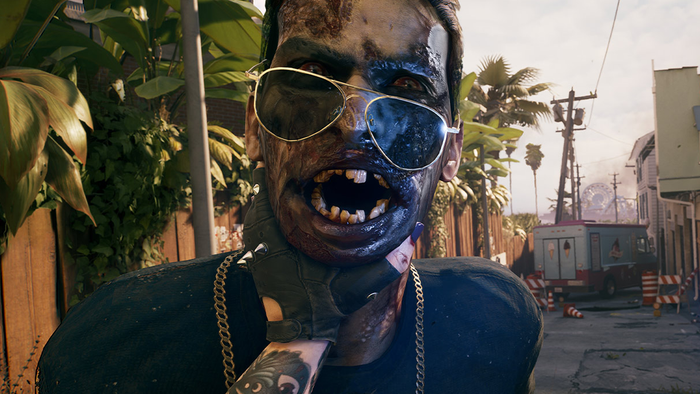Inside Game Piracy, Part 1: Crushing Discs, Pushing Education
Game piracy is still a major issue, and in this first part of a Gamasutra special report, we talk to the ESA and PC Gaming Alliance -- discussing why cracking down on physical goods piracy and "making people think just one more time before they click down

[Game piracy is still a major issue, and in this first part of a Gamasutra special report, we talk to the ESA and PC Gaming Alliance -- discussing why cracking down on physical goods piracy and "making people think just one more time before they click download" may break the vicious cycle.] When 2D Boy recently claimed that the piracy rate for its PC independent game World of Goo was something like 90 percent, it raised two interesting issues. First, it demonstrated that the methodology for actually quantifying piracy is a long way from stability, as many debated the saliency of such a figure. And second, it proved that although piracy is unmistakably a major obstacle for an industry where profitability is already highly challenging, there's little that can be done about it until the methods for measuring its impact are clearly defined. The PC Gaming Alliance is a group of industry leaders including reps from Microsoft, Dell, Activision, Capcom and many others, who meet to work on solutions for challenges facing the space and promote the health of the platform - and piracy is a particular problem for PC in particular. With that in mind, the PCGA has formed a new subcommittee to start examining ways to take the crucial first step of learning to quantify piracy and its material impact. Christian Svensson, senior director of strategic planning and research at Capcom, is a member of the PCGA, and tells Gamasutra that the new impact-oriented subcommittee is just now getting off the ground. There's a complicated road ahead with a good many factors still up in the air, but the subcommittee knows that quantifying that impact is a key first step. "We're just starting to lay out the groundwork," Svensson says,"I would hope within the next three months we have started to make some progress toward that." Enforcement In The Non-Digital World Meanwhile, the Entertainment Software Association, as the trade body that represents the industry's interests, has also been tackling the problem. "Part of the problem is it's vast, it's happening in different parts of the world where the ability to measure activity is difficult," says the ESA's Ric Hirsch, senior vice president of intellectual property enforcement. "And that's exacerbated by the internet, which has the effect of anonymizing a lot of activity, and a lot of it is done behind closed digital doors, if you will, so it is difficult to estimate. We see a piece of that, and the piece that we see can be somewhat alarming at times, vis a vis the volume and intensity of activity, particularly around new releases." Hirsch admits that the ESA and the PCGA have not formally aligned to collaborate on anti-piracy initiatives. Instead, the ESA approaches the problem through various international programs focused on enforcement and training. It works with local authorities to bust hard goods piracy rings - for example, the ESA's enforcement program in Mexico, established in 2005, has helped it build a "positive working relationship," as Hirsch says, with authorities in that country. Recently, with the help of Mexican law enforcement, the ESA targeted a large Guadalajara shopping center where investigators had identified several vendors selling pirated games. "Based on the evidence selected, we went to authorities, explained the problem, and were ultimately able to arrange for them to take an action in seizing a lot of illegal game products," Hirsch says. And Hirsch adds the ESA has programs in six other countries: Canada, Brazil, Paraguay, Malaysia, Hong Kong and Singapore. A new initiative in Korea focuses largely on that country's thriving online games biz with a takedown program. "We use an outside vendor through which we monitor instances of infringing activity involving our members' game product," says Hirsch. "Based on the reports... once we verify that infringement is infringement, we will transmit a takedown notice to the ISP requesting their intervention in procuring cessation of the pirate activity. And that's something we do globally; we send takedown notices to ISPs all over the world." Of course, to benefit from the ESA's enforcement activities, companies need to be members of the ESA. "We need specific authorization from members, as rights-holders to engage in this activity," Hirsch explains - so for example, when it comes to companies like Activision who have left the ESA, "we don't have any specific authorization to undertake specific activities on their behalf." The Online Factor But while the ESA has met with a great deal of success putting out hard goods piracy fires where it finds them, Hirsch admits that disc copying is less and less the major problem, these days. "We pretty much recognize... how much infringing activity is moving more and more to the internet," he says, citing convenience and availability online as a primary driver. The ESA still plans to focus on hard goods, which Hirsch says still remains a significant problem, especially in developing nations where internet access is not widespread. "In a lot of established markets with greater broadband access to the internet, we do tend to see upticks in download activity involving pirated games , and obviously there's a concern about that," says Hirsch. "We are trying to pursue some of the principal players who are involved in this activity in terms of the people at the top of the piracy food chain, members of warez groups who within days of a game's release and sometimes before, manage to get pirate versions of games available out there on the internet for download." So as the ESA focuses its investigative efforts on online groups while continuing its ground-level enforcement initiatives, Hirsch says the issue of IP protection is also enjoying increased support from the U.S. government. "Over the last eight to 10 years, the U.S. government has stepped up its efforts in addressing IP piracy, in which game piracy is a small but growing part," says Hirsch. And that's allowed the ESA to contribute an "extensive" training program to help investigative and law enforcement groups increase their knowledge and sophistication when it comes to recognizing pirate software, education efforts it continues to expand as part of its international enforcement initiatives. "Part of our mission is to make law enforcement understand better the problems that game piracy creates for the development of local game markets and how it impacts businesses and tax revenues from the game sector," says Hirsch. And at least on the PC gaming side, the PCGA's committee to evaluate this impact in more specific terms is a promising idea. Capcom's Svensson finds 2D Boy's 90-percent figure for World of Goo a bit high, though. "I think most of us on the software side that have any kind of reporting capability, and any kind of tracking mechanism for authorized versus unauthorized server data... 90 percent is high. There's no question that's high, probably a little higher than what we normally see." And what's normal for Capcom? "For what we have seen with our own games, 50 percent would be the low end," says Svensson. Of course, it may depend on the size of the game and the resultant ease of piracy, with Reflexive's Russell Carroll recently estimating that around 92% of the people playing the full version of his company's PC casual game Ricochet Infinity pirated it. How Education May Help It may seem a surprising number - which is why it makes sense that when the PCGA convenes to start forming its new anti-piracy plans, one major goal will be to look at ways to increase consumer awareness. "I think if we can actually educate people on the impact, and how prevalent it is, I think that will eventually have a positive impact on many people," says Svensson. "It may help make people think just one more time before they click download." Education plays a key role in the ESA's anti-piracy initiatives, too, and not just the training it offers law enforcement. Says Hirsch, "Several years ago, in discussions with member companies, we tried to sit down and think about how we impact the demand side, as opposed to the supply side." The ESA decided that in that respect it would be best served addressing the segment of the gaming audience most open to receiving messages about the rights and wrongs of unlawful downloads: elementary school students. "Many of them are starting to use computers and internet at earlier age," says Hirsch. "And we're trying to give them some guidance with respect to what IP is, and why taking stuff without permission is wrong. These are things that oftentimes children do not learn as they learn to use the internet." So the ESA worked with an educational curriculum company called LearningWorks -now known as YoungMinds - and developed an age-appropriate curriculum to be used by elementary schoolteachers, designed to complement other core lesson plans they may have. The program they developed is targeted at various age groups from kindergarteners to 5th grade, and is designed to introduce to them on a basic level the value of intellectual property. Curriculum materials are housed on the web at JoinTheCTeam.com. "Having the kids work on things and develop things -- their own pieces of intellectual property... they get to understand that after working on something, they have certain privileges of ownership with respect to what they created," says Hirsch. "It ties in with plagiarism themes... and teachers respond very well to that, because they're looking for materials about plagiarism, particularly through the use of computers and the internet." In particular, parents are included in these school-based initiatives, as an important part of the equation is helping parents understand their children's online behavior. [Tune in tomorrow for the second part of the piracy special, focusing on counter-measures, copy protection schemes, and new solutions for piracy-related issues.]
About the Author(s)
You May Also Like













